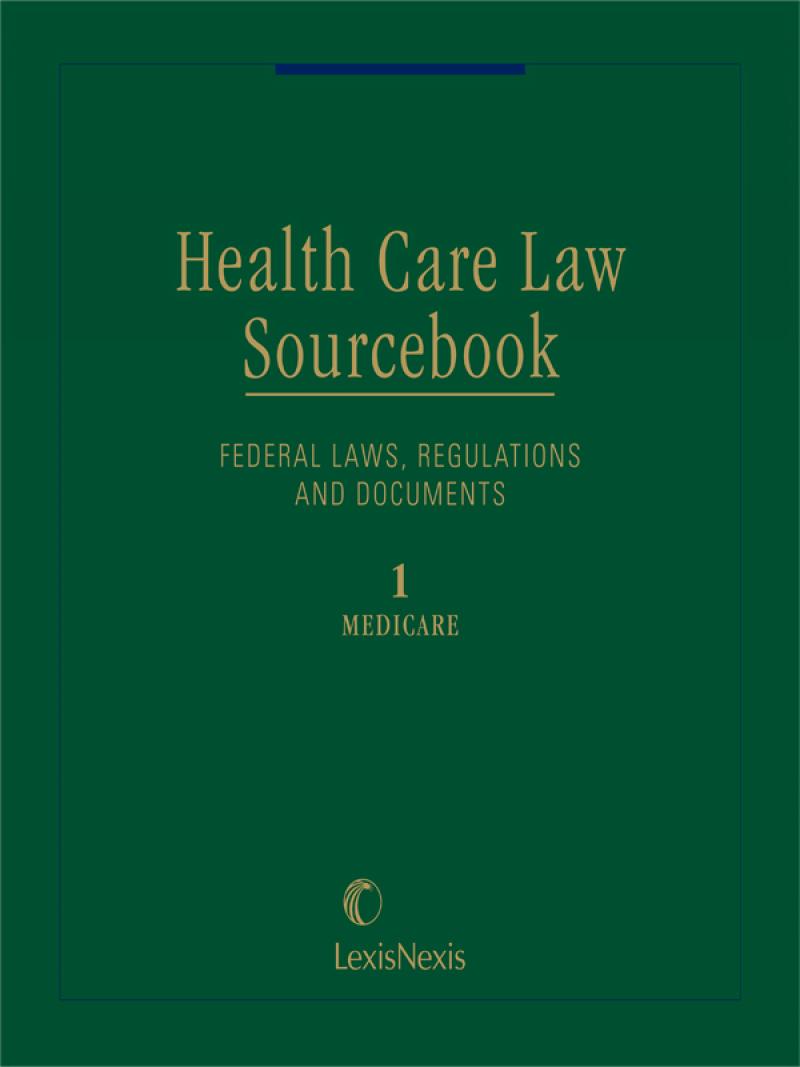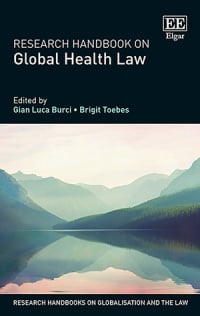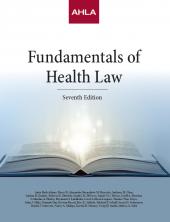Home
Welcome
This guide provides an overview of health law research strategies. It will highlight some of the key secondary and primary resources in these areas. It will also provide current awareness sources. To learn more about performing legal research generally, please visit:
Health law has become a distinct field in its own right. However, researchers may also wish to explore: Bioethics, Health Care Policy & Reform, Medical Device Law & Industry, Medical Malpractice, Medicare/Medicaid, Pharmaceutical Law & Industry, and Public Health. For a brief summary of health law please visit:
-
Health Law: An OverviewCornell Legal Information Institute
Secondary Sources
Using Secondary Sources
Secondary sources are a great place to begin your research. To learn more about secondary sources and how to use them, visit the following guide:
Encyclopedias & American Law Reports
Legal encyclopedias contain brief, broad summaries of legal topics. They provide introductions to legal topics and explain relevant terms of art. State encyclopedias can also be found on Westlaw and Lexis.
The American Law Reports contains in-depth articles on narrow topics of the law. Use the following Indices to access the ALR. Note: Lexis also has some ALR materials but Westlaw's are more complete.
Health Law Treatises
There are many health law treatises within our collection. Users can search in Hollis for the most up-to-date legal treatises.
Books - General
Books - Administration
-
Legal and Ethical Essentials of Health Care Administration by
ISBN: 1284172562Publication Date: 2020-03-25 -
-
Health Care Management and the Law Principles and Applications by
ISBN: 9781284117349Publication Date: 2017-03-16
Books - Bioethics & Biotechnology
-
Righting Health Policy: Bioethics, Political Philosophy, and the Normative Justification of Health Law and Policy by
ISBN: 9781498589963Publication Date: 2022-02-01 -
-
-
The Reality of Human Dignity in Law and Bioethics by
ISBN: 9783319991115Publication Date: 2018-11-29 -
-
-
-
Books - Mental Health
-
The Mental Health Tribunal by
Call Number: GEN KD3412.H53 2022ISBN: 9781529708493Publication Date: 2022-05-30 -
 Mental Health and Conflicts
by
Call Number: GEN HM1126.B48 2022ISBN: 9781639050642Publication Date: 2022-01-01
Mental Health and Conflicts
by
Call Number: GEN HM1126.B48 2022ISBN: 9781639050642Publication Date: 2022-01-01 -
-
Books - Pandemic Response
-
-
-
Law of Disaster and Pandemic Management in India : COVID-19 - a case study by
ISBN: 9788194792215Publication Date: 2020-01-01 -
Books - Policy
Books - Public Health
-
Public Health Evaluation and the Social Determinants of Health by
ISBN: 9781003047810Publication Date: 2020-05-07 -
-
-
Legal and Medical Journals
In addition to Hollis, mentioned above, many databases can be used for secondary source research:
In addition to traditional law reviews and journals many advocacy organizations also publish:
-
American Health Law Association Seminar PapersFor papers prior to 2009 visit the American Health Law Association Seminar Papers - Archive
-
American Journal of Law & Medicineby the American Society of Law and Medicine
-
Food and Drug Law Journalby the Food and Drug Law Institute
-
Internet Journal of Law, Healthcare and Ethicsby Internet Scientific Publications
-
Issues in Law & Medicineby the National Legal Center for the Medically Dependent & Disabled
-
Journal of Law, Medicine, and Ethicsby the American Society of Law, Medicine & Ethics
-
Journal of Legal Medicineby the American College of Legal Medicine
Primary Sources
Using Primary Sources
Primary authority is "authority that issues directly from a law-making body." Authority, Black's Law Dictionary (11th ed. 2019). To learn more about primary sources and how to use them visit:
-
State Health Statutes - LIITable of state codes on health law, for general use only, not citation.
Statutes & Legislation
50 State Surveys are tools used to compare the law across multiple states. To learn more about using and accessing 50 State Surveys see our guide on:
Comparing State Law
For 50 State Surveys on Health Law visit:
Legislative History
This may help when considering the impact of Federal and State statutes related to health. Consider searching for earlier versions of the law, supporting testimony, and additional documentation. If available, consider consulting published legislative history.
-
ProQuest Regulatory InsightFind regulations that have been promulgated as a result of the ACA.
If there is no existing legislative history, researchers may need to consult congressional materials directly.
Regulatory & Administrative Law
Regulations comprise a substantial portion of primary sources in health law research. Statutes may enable change in health policy (such as the Affordable Care Act) and create specific health programs (such as Medicare and Medicaid). Yet, the way those policies and programs are administered relies primarily on regulation.
If you are unfamiliar with how to conduct regulatory research, please visit:
The regulatory process can be complex, especially in the field of health care. Multiple agencies can be involved in promulgating regulations, further complicating the process. This visual overview can be helpful:
It may be easiest to start with a regulation by number or agency by name. Secondary sources such as books, scholarly articles, or advocacy communications can help you get started.
Government agencies websites provide information about proposed regulations and track them through the regulatory process.
-
Federalregister.govContains federal agency documents, including proposed rules, final rules, public notices, and Presidential actions. This unofficial format provides the same material printed in the official Federal Register. It also contains related material from the Code of Federal Regulations and the US Code.
-
Regulations.govAllows users to search regulatory materials, submit comments, and sign up for email alerts. Some agencies require that comments be submitted through their own individual platforms. However, regulations.gov serves as a clearinghouse for the majority of publicly available public comment material.
-
Reginfo.govProduced by the Office of Management and Budget (OMB) and the General Services Administration (GSA). OMB's Office of Information and Regulatory Affairs (OIRA) reviews Federal regulations and information collections. The site provides information about regulations under development to enable public participation.
Administrative Materials are also accessible on both Westlaw and Lexis:
Agency websites also contain regulations and resources that can aid in conducting research:
Case Law
Some agencies can also decide cases related to particular regulations. These agency decisions may not be included in general case law databases. Decisions can often be accessed through agency websites:
Practice Materials
Using Practice Materials
Practitioners often write the most helpful resources in the field of health law. Although they have similarities to treatises, they are directed at lawyers in practice. They may contain checklists and forms not available in a traditional treatise.
Practitioner Materials
Handbooks and guides are helpful when working on health law issues as a new practitioner.
Organizations
Non Profits and NGOs
-
National Agencies and Organizationsfrom Pace Health Law Research Guide
The following organizations may be particularly useful to researchers:
-
Center for Medicare AdvocacyNonprofit, nonpartisan law organization providing education, advocacy, and legal assistance to help people obtain Medicare. In addition to the newsroom, you can sign up for alerts via email.
-
Families USAA consumer advocacy group that focuses on Health Care, with a robust newsroom. You can access insights, reports, raw data, and more under their resources tab.
-
Kaiser Family FoundationA non-profit organization focusing on national health issues. They provide policy analysis, journalism, and communication for the general public.
-
Community CatalystNon-profit dedicated to consumer health advocacy, working in 40 states across the country.
-
Dual Agenda NewsletterIncludes state highlights on health care reform. Their ACA Implementation Fund partners with state-based advocacy groups on issues related to the implementation of health care reform. They focus on the state level, and explore the impact of potential repeal.
-
Health Policy Hub BlogAllows for email subscription.
Interdisciplinary Materials
Health & Medical Field Resources
Health law is an interdisciplinary area. You may benefit from accessing health and biomedical resources.
For unfamiliar terms and acronyms consult the following:
-
-
Dorland's Dictionary of Medical Acronyms and Abbreviations (8th ed.) by
ISBN: 0323932606Publication Date: 2022-11-01
There are several health and medical databases that may be helpful in your research:
-
PubMedFor how to use please visit the Pubmed Research Guide
Additional Resources
Health law also touches on many different research areas. These additional research guides contain important content related to health law:
-
Research Guide on International Health LawGlobaLex Guide from Professor Chenglin Liu, St. Mary's University School of Law
Current Awareness
Current Awareness Sources
Advocacy Resources
-
POLITICO ProPoliticoPro provides subject-based issue and policy tracking tools in multiple areas including Health Care. It prepares issue pages for major policy areas. Features include: news, calendar function, whiteboard, charts, graphs, and glossaries, all in well-organized practice centers. PoliticoPro content relies on policy experts in the field, writing in real time. The site also stores all primary source documents in a "document drawer" for easy access.
-
LegistormThe In the News section curates news from Capitol Hill. StormFeed provides updates from press releases, social media accounts from legislators, and relevant trending hashtags. For regular alerts, request a personal account (contact research@law.harvard.edu).
-
VitallawThe Health Care library includes several Daily Documents and Newsletters. Researchers can also find CMS manuals and guidance, and State Health Care information.
News Sources
Keeping up-to-date with new developments in the field of health law will enhance research projects. Recent headlines in the field may also inspire researchers still looking for a paper topic. Use these links to find news sources related to health law:
-
Kaiser Health NewsA nonprofit news service committed to in-depth coverage of health care policy and politics (not affiliated with Kaiser Permanente). Kaiser Health News includes a morning briefing and updates via email or RSS feed.
-
Health AffairsA leading peer-reviewed journal of health policy thought and research. Aims to offer a nonpartisan forum to promote analysis and discussion.
-
MedpacAn independent congressional agency advising the U.S. Congress on issues affecting the Medicare program.
-
Health Law Daily - WestlawDaily updates on current health law developments including the areas of food safety and Medicaid.
-
Law360Access is available on the Harvard Law School campus. Off-campus access is available to current HLS affiliates and controlled by Harvard Key.
Law360 contains the latest legal news with the ability to filter news results on over thirty practice areas, nine jurisdictions, and eighteen industries. Law 360 also includes expert analysis on breaking legal issues. It is also available through Lexis+.
Legal Blogs
Legal Blogs have become an increasingly rich source of information and legal news. Below are two indices to health law blogs:
Getting Help
Contact Us!
Ask Us! Submit a question or search our knowledge base.
Chat with us! Chat with a librarian (HLS only)
Email: research@law.harvard.edu
Contact Historical & Special Collections at specialc@law.harvard.edu
Meet with Us Schedule an online consult with a Librarian
Hours Library Hours
Classes View Training Calendar
CC License
CC License
This guide is licensed under a Creative Commons Attribution-Noncommercial-Share Alike 3.0 United States License.
You may reproduce any part of it for noncommercial purposes as long as credit is included and it is shared in the same manner.




